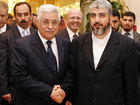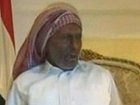Syrian forces backed by tanks killed at least 57 people on Sunday in the regions of Deir Ezzor, Homs and Idlib, activists said, as President Bashar al-Assad defended what he termed the state's duty to crack down on "outlaws" despite mounting condemnation.
Security forces killed at least 38 civilians in the city of Deir Ezzor alone, activists said, and at least seven more died in Hula, a town in Homs province, in a separate assault with tanks.
 Full Story
Full Story
Syria’s foreign ministry on Sunday rejected criticism from the Gulf Cooperation Council of Damascus’ violent crackdown on protests and called for Gulf states to instead condemn "the violence of armed groups” and to “allow time for the reforms" proposed by President Bashar al-Assad.
“Syria has received with regret the statement of the Gulf Cooperation Council (GCC), which completely ignored the information and facts presented by Syria on the killing and sabotage acts committed by armed terrorist groups seeking to undermine the homeland's sovereignty and security,” Syria’s state-run news agency SANA quoted a Syrian official source as saying.
 Full Story
Full Story
Rival Palestinian groups Fatah and Hamas opened talks Sunday in Egypt aimed at implementing a reconciliation agreement struck in May, state news agency MENA reported.
The two sides held consultations late Saturday in the presence of Egyptian intelligence officials, the agency said, adding Fatah's delegation is led by Azzam al-Ahmed and Hamas by Moussa Abu Marzouq.
 Full Story
Full Story
Syrian President Bashar Assad’s advisor Buthaina Shaaban criticized on Sunday’s Turkey’s position on the developments in Syria, saying that its Foreign Minister Ahmet Davutoglu will hear “stronger statements when he visits Syria.”
She said in a statement: “If the Turkish foreign minister believes that he is arriving in Syria to deliver a firm message, then he will hear a firmer message from us.”
 Full Story
Full Story
Yemeni President Ali Abdullah Saleh has left hospital in Riyadh, two months after he was badly wounded in a bomb attack as his forces waged a deadly crackdown on protesters, a Saudi official said on Sunday.
"The Yemeni president left the military hospital this (Saturday) evening at 9 pm (1800 GMT) after receiving the necessary treatment and was taken to a temporary residence for a recovery period," the Saudi official told AFP.
 Full Story
Full Story
Radical anti-U.S. cleric Moqtada al-Sadr warned that any U.S. training mission in Iraq after 2011 would amount to an occupation force and need to be opposed by "military means," in a letter seen on Sunday.
The letter, released on Saturday in the Shiite cleric's base in the shrine city of Najaf, came after Baghdad agreed to open talks with Washington for a training mission post-2011, when all U.S. troops are due to have left.
 Full Story
Full Story
Turkish Foreign Minister Ahmet Davutoglu will visit Syria on Tuesday with the message that Ankara "has run out of patience" with the ongoing violence, Prime Minister Recep Tayyip Erdogan said.
"We have reached the end of our patience and that's why I am sending the foreign minister to Syria on Tuesday," Erdogan was quoted by the Anatolia news agency as saying.
 Full Story
Full Story
U.N. leader Ban Ki-moon told Syrian President Bashar Assad on Saturday to immediately end his deadly military campaign against opponents, the United Nations said.
Ban also said the use of mass arrests must also be halted in Syria in the first contacts between the two since April.
 Full Story
Full Story
Almost a quarter of a million Israelis rallied in central Tel Aviv on Saturday, police said, for a mass protest aimed at pushing the government into reforms to ease the cost of living.
The organizers appeared to have achieved their target of drawing a "critical mass" out onto the streets to underline the staying power of a movement which began in mid-July over housing costs.
 Full Story
Full Story
Security forces on Saturday arrested prominent opposition figure and former political prisoner Walid al-Bunni and his two sons, Syrian Observatory for Human Rights chief Rami Abdel Rahman said.
The arrests came after Syria vowed on Saturday to hold "free and transparent" elections by the end of 2011 as Arab states in the Gulf joined a chorus of Western pressure over its deadly suppression of anti-regime protests.
 Full Story
Full Story



